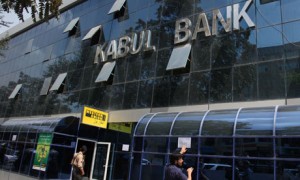Thursday
Sep092010
Afghanistan: The Politics of the Kabul Bank Crisis (Ellick/Filkins)
 Thursday, September 9, 2010 at 11:17
Thursday, September 9, 2010 at 11:17  Adam Ellick and Dexter Filkins write for The New York Times:
Adam Ellick and Dexter Filkins write for The New York Times:In early 2009, as President Hamid Karzai scanned the landscape for potential partners to run in his re-election bid, he was approached from an unusual corner: a bank.
The president’s brother, Mahmoud, and another Afghan businessman, Haseen Fahim, were shareholders in Kabul Bank, one of the freewheeling financial institutions that had sprung up over the past decade since the Taliban’s fall.
Afghanistan: “A New Way Forward” (Afghanistan Study Group)
According to Afghan officials and businessmen in Kabul, Mahmoud Karzai and Mr. Fahim recommended Mr. Fahim’s brother, Gen. Muhammad Qasim Fahim, to become the president’s running mate.
President Karzai agreed, and in a stroke co-opted his ethnic Tajik opposition and placated an old political foe with a checkered record on human rights and corruption. After the deal, Kabul Bank poured millions into Mr. Karzai’s re-election campaign, Afghan officials said. Mahmoud Karzai and Haseen Fahim, drawing on Kabul Bank’s resources, were able to enrich their families aided by tens of millions of dollars in loans.
Now, Kabul Bank sits at the center of a financial crisis that has exposed the shadowy workings of the country’s business and political elite, and how such connections shielded the bank from scrutiny. The panic surrounding Kabul Bank is threatening to pull down the Afghan banking system and has drawn in the United States. And it is driving a wedge between the Fahims and the Karzais, the two Afghan political families that benefited most. Now, the financial-familial arrangement is teetering on the edge of collapse.
“The brothers orchestrated the political deal to serve their business interests,” said a prominent Afghan businessman in Kabul who, like virtually everyone interviewed for this article, spoke only on condition of anonymity. “Fahim became vice president, and the bank financed Karzai’s re-election.
“In Kabul, politics is all about money,” he said. “It’s the same thing.”
Read full article....
